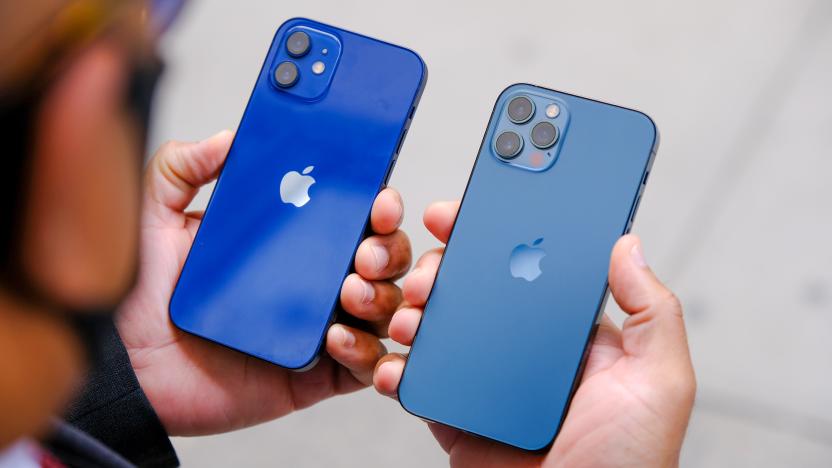secruity
Latest

Researchers say they built a CSAM detection system like Apple's and discovered flaws
Two Princeton University academics say they know the tool Apple built is open to abuse because they spent years developing almost precisely the same system.

Hijacked headphones could be used to listen in on your life
Fun fact: If you're in a pinch and need a microphone, a spare pair of headphones can do the job. Not so fun fact? A group of researchers at Israel's Ben Gurion University just figured out that those headphones can be hijacked to spy on you. Yeah -- 2016 is scary.

Watch out for fraudulent 'Pokémon Go' apps
It's official: Pokémon Go has become a major phenomenon: It's getting people interested in augmented reality, inspiring filmmakers and even helping players cope with anxiety. Unfortunately, it's also creating targets for malware developers. According to the antivirus folks at ESET, at least three fake Pokémon Go apps have been spotted on the Google Play store since the game launched. One of them has the unsettling distinction of being the first malicious, fraudulent screen-locking app to surface on Google Play.

Nest is reportedly working on an outdoor security camera
In a letter to employees posted by The Verge yesterday, new Nest CEO Marwan Fawaz reassured employees that the company wasn't for sale and stated that the focus should be on delivering new products currently in the works. Although a specific reference to a new gadget was redacted in the letter, Tech Insider reports that one of the new items mentioned is an outdoor version of the Nest Cam.

Yahoo releases content of three FBI data requests to public
Today, Yahoo made minor history by becoming the first company to publicly confirm that it has been issued National Security Letters (NSLs) from the FBI. It sounds like a simple story, but it's actually a huge win for transparency: until recently, gag orders kept companies like Yahoo from acknowledging NSLs in all but the vaguest of terms. Now, thanks to the USA Freedom Act, the company is able to divulge the contents of three FBI data requests made since 2013.

Israeli researchers compromise isolated network with dumbphones
Without a doubt, storing highly sensitive data on an internet-disconnected, "air-gapped" computer network is one of the best security measures an organization can take -- but nothing is foolproof. Researchers at Ben-Gurion University in Isreal have figured out how to discreetly siphon data from a isolated computer with no wireless radios, no external connectivity and no connection whatsoever to any other computer. All it takes is a little malware and an old, non-smart mobile phone.

New bill would extend Patriot Act surveillance until 2020
In case you haven't heard, the Patriot Act's Section 215 is set to expire June 1st. That's the provision that National Security Agency uses to justify its bulk data collection practices. However, Senate Majority Leader Mitch McConnell is working to make sure the current rules remain in place. McConnell introduced a bill earlier this week that would extend the Patriot Act's justification of post-9/11 surveillance until 2020. What's more, the senator already put the bill on the Senate calendar using a rule that allows him to bypass the usual committee process.

EFF praises major tech companies for doing more to protect your data
The jury (or rather, congress) is still out on how Snowden's now-legendary leaks will effect the NSA, but it's certainly changed how companies handle user data. According to the Electronic Frontier Foundation's latest "Who Has Your Back?" transparency report, 2014 is a landmark year for user privacy -- Apple, Dropbox, Facebook, Google, Microsoft, Yahoo and Twitter all earned perfect scores in the report's six-point evaluation. The scoring metric awards stars for companies that require the government to get a warrant before collecting user data, or to firms that publish their own transparency reports. Overall, the report shows a marked improvement over last year, but the EFF still highlights other big companies that could do a lot more to protect and reassure their users.


